Dear Friends;
I hope that you’ll enjoy the following Parasha summary followed by a Dvar Torah;
” Parsha in a Nutshell ”
Judah approaches Joseph to plead for the release of Benjamin, offering himself as a slave to the Egyptian ruler instead of Benjamin. Upon witnessing his brothers’ loyalty and the love for one another, Joseph reveals his identity to them. “I am Joseph,” he declares. “Is my father still alive?”
The brothers are overcome by shame and remorse, but Joseph comforts them. “It was not you who sent me here,” he says to them, “but G-d. It has all been ordained from Above to save us, and the entire region, from famine.”
The brothers rush back to Canaan to tell their father the good news of Joseph being alive. Jacob comes to Egypt with his sons and their families — seventy souls in all — and is reunited with his beloved son after 22 years. On his way to Egypt he receives the Divine promise: “Fear not to go down to Egypt; for I will there make of you a great nation. I will go down with you into Egypt, and I will also surely bring you up again.”
Joseph gathers the wealth of Egypt by selling food and seed during the famine. Pharaoh gives Jacob’s family the fertile county of Goshen to settle, and the children of Israel prosper in their Egyptian exile.
” Dvar Torah ”
Probably, the most dramatic reunion in the history of mankind is recorded in this week’s parsha. Jacob is reunited with his beloved son, Joseph! After twenty two years of living in misery and sorrow, thinking that his favorite son is dead, Jacob is suddenly informed that Joseph is still alive and well. Although, he was hesitant at the beginning to believe such an unimaginable news, but after seeing all the chariots and the entourage for his honor, his spirit was revived and he said “my son Joseph is still alive. I shall go and see him before I die”. So he rushed down to Egypt to meet Joseph face to face. The scene of their close encounter is every writer’s dream to write about, in order to show off his or her writing talents. Any good writer has the ability to revive the scene for us by describing in detail their inner feelings, their facial expressions, their emotional reactions and their exchange of words at the time of their encounter. How loud did they cry? How long did they embrace? Who said the first word? Who was more happy? If only I was a writer………..
Well, let’s see what the writer of all writers, the G-d Almighty himself, has to say about the most affectionate reunion of all times in his Holy Bible?!
Yet, strangely enough, the Torah doesn’t talk much about this dramatic scene. It just says that at the time of their close encounter, Jacob, apparently, remained emotionless and silent while Joseph wept. Rashi, the famous Torah commentator, explains that Jacob was reciting the “Shema” or was having a conversation with the Almighty at the time. He explains that in all the years of their separation, Jacob was in a depress mood and the Divine Spirit had departed from him and he was therefore unable to communicate with G-d. Now that he saw Joseph in front of his eyes, alive and well, the joy of the moment allowed the Holy Spirit to return to him once again and he used the opportunity to communicate with the Almighty.
But even if we tend to accept Rashi’s commentary, it still doesn’t justify Jacob’s lack of emotions. Surely, he could have recited the Shema, and at the same time, he could have shown a sign of joy on his face, or even let a few drops of tears run down his cheeks. I have a hard time controlling my tears just writing about this?! How could Jacob show no signs of affection?!
What is more mind bugling, is that Jacob doesn’t reveal any emotions later on in the Parsha either. He doesn’t even ask any questions regarding Joseph’s disappearance from Joseph or his brothers. So many unanswered questions needed to be asked! How did Joseph end up as ruler of all Egypt? Why didn’t Joseph come and visit his father when he was in power? And above all, how did Joseph disappear in the first place? Jacob’s lack of emotions raises a bigger question. Was Jacob, G-d forbid, a heartless person who didn’t care about his children??
Well, after a little research, I came across an explanation given by Rabbi Frand, quoting Sforno, which really touched my heart. He says that Jacob was well aware of the tensions that existed between Joseph and his brothers. He also realizes that his sons mislead him when they showed him Joseph’s bloody gown. And being a prophet, he probably knew what exactly had happened between Joseph and his brothers, since later on, on his deathbed he says to Joseph: ” I know, my son, I know.”
But he chose to be silent, since he saw that his sons are all reunited again, and that was all that mattered to Jacob; to see his children living in peace and harmony together! He didn’t show any emotions to Joseph, because any sign of emotions would have revealed the painful years that Jacob had to go through, which Joseph would have blamed his brothers for. He knew very well that any show of emotions or asking questions will only rip open a scab on a wound that has to healed slowly and carefully. He realized that sometimes you have to let the bygones be bygones, and you need to focus on the future rather than to concentrate on the past. He knew that his children are going to be the heads of the Jewish nation, and the secret to Jewish survival is “UNITY”. So he didn’t ask any questions, since any question would have ended up blaming one party or the other, and would have created a friction or separation between them again. He didn’t want to play the “blame game”, but rather, he wanted to play along with their “unity”!
Yes my friends, once again, the Torah emphasizes the importance of “unity” among brothers, or among all the Jews for that matter. For the sake of unity, sometimes you have to hide your emotions. For the sake of unity, sometimes you have to keep quiet. And for the sake of unity, not every family secret needs to be publicly revealed nor every family dispute needs to be brought up, constantly. Sometimes you have to let go of the past in order create a better future!!
Everyone does mistakes in their lives. But if we are not willing to forgive and forget, then relationships can be very fragile. Family relationships are based on forgiveness. The Torah commands us not to hold a grudge, because holding a grudge will create separation and that’s not what Hashem wants from us. He wants us to get along with everyone, even with those who have done us wrong. He wants us to forgive in order to be united. If Joseph could find it in his heart to forgive his brothers and if Jacob can let go of 22 years of misery and suffering for the sake of unity, then why can’t we??
Nothing gives more pleasure than to see your children living in peace and harmony together. David HaMelech with all his power, unfortunately, couldn’t get his children to get along with each other, and longed to see the day when they would be united. All he could do was to inspire the future generations by putting down his dream onto the paper: “Hiney matov u’manayim, shevet achim gam yachad”…….. “See, how nice and how pleasant it is for brothers to dwell together in unity!”
Shabbat Shalom & Regards;
Martin


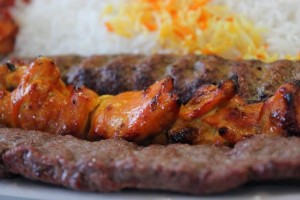
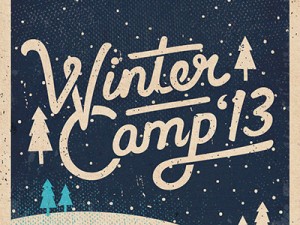
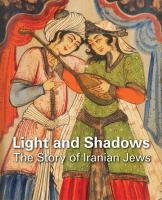
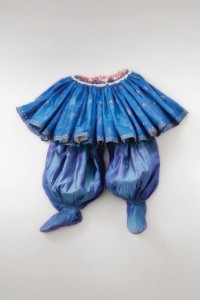
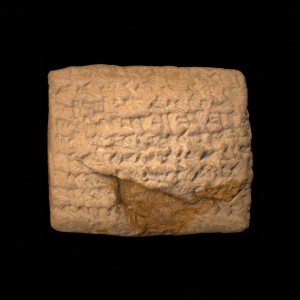
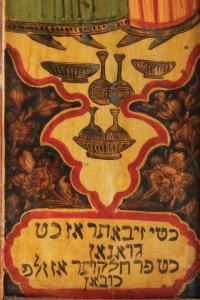
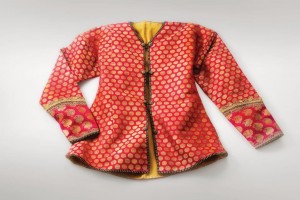






You must be logged in to post a comment.